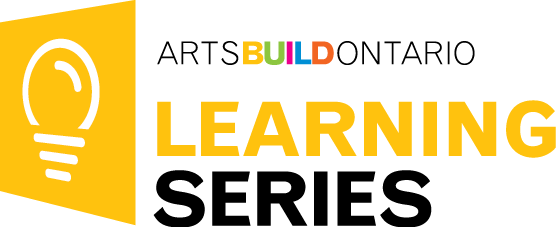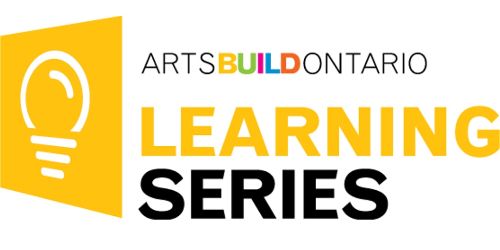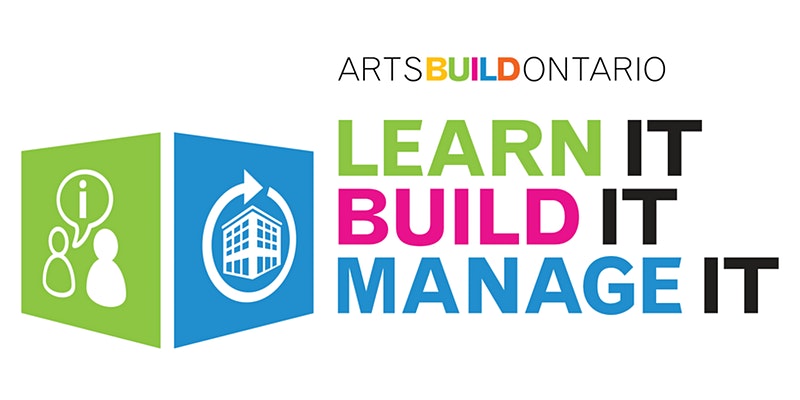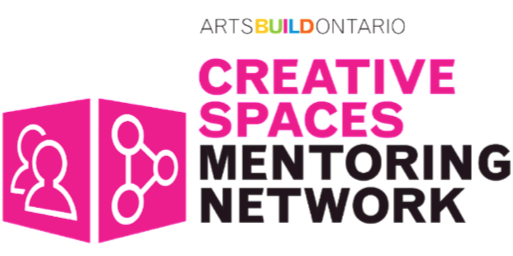
The Creative Spaces Mentoring Network provides you with the unique opportunity of one-to-one mentoring with an experienced professional in the arts. In the following post-program interview, hear how 2019-20 Matthew Fava, Director of Ontario Region at The Canadian Music Centre learned from the program in many different ways.
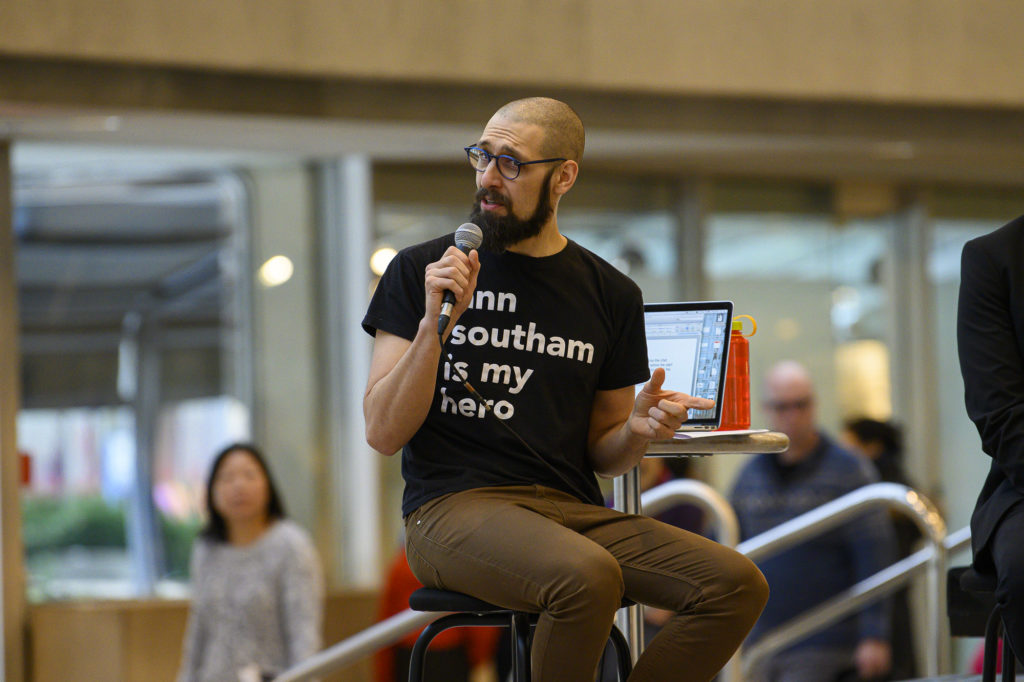
1. What motivated you to sign up for the Creative Spaces Mentoring Network?
I felt motivated by many things. On a personal level, I arrived in my role as an arts administrator with no formal training. Drawing upon my experience in community-based media and art spaces, I felt confident with things like event coordination, workshop facilitation, building partnerships, volunteer and membership engagement, and so on. The practical aspects of managing a venue are something else entirely. Naturally, improving my own knowledge and skills became a factor for me, paired with a desire to better understand the wider field I work in.
In addition, I wanted to enhance my contribution to the Canadian Music Centre (CMC). We own and operate a heritage building in downtown Toronto, and I have become something of a default figure in the development of various systems for managing and enhancing our performance facility. Several years into the implementation of this performance facility, we do not have a clear operation plan for the space. Such a plan would help establish priorities and expectations, while balancing revenue-generating activities (rentals) with many of the programming streams that I get super excited about: residencies, community engagement, multi-day workshops, concert presentations, installations, and more.
Being able to augment the skills and perspectives of our staff team through a program like CSMN felt like a significant and necessary step.
2. Who was your mentor?
My Mentor for CSMN was Kendry Fry, the General Manager at Trinity-St. Paul’s Centre for Faith, Justice and the Arts.
3. Were they a part of the same industry/arts discipline as you? If not, were you still able to learn things applicable to your situation from your mentor?
In a way. It was clear from the beginning that Kendra had profound knowledge of venue/facilities management, and how to serve as an interface between communities (and artists) who are in need of space for creation and presentation, and the venue itself with its multitude of operational pressures.
My primary constituency at the Canadian Music Centre is (unsurprisingly) artists working with sound and music. While the CMC is a professional service organization, I am most compelled by our ability to create new and unprecedented connections across networks, disciplines, and communities in Toronto and beyond—at which point, the specifics of your medium (what you are doing) matter less than the values guiding your work (how you are doing it). Kendra’s insights on the “how” were wholly illuminating for me.
In her role, she will hold in her mind an artistic objective and then consider it in relation to organizational history and culture, current operational goals, and an inspired extrapolation of what kind of community we want to build for ourselves. Seeing the ways that Kendra applies that knowledge to wider research, consulting, and advocacy work on top of her role at Trinity-St. Paul’s was truly inspiring.
There was endless learning to be had.
4. How did your one-to-one meetings take place? What kind of structure did your meetings have?
Kendra and I would be in touch by email regularly to set up a monthly meeting. We started with a visit to Trinity St. Paul’s, and it was amazing to walk the building(s) with her. I could glean so much from her commentary, from passionate descriptions of various tenant relationships to casual remarks about plumbing systems. From there we began to set up a main focus for our monthly meetings: strategizing for major facilities upgrades, tracking and updating venue protocols, budgeting and big expenses, managing a staff team, and so on. Each meeting would last roughly an hour, and would allow time for branching off to encompass a great many other topics—Kendra was an attentive listener through all of my ramblings and would find ways to connect a random story about an East Coast music festival back to our discussion of venue and community.
I would encourage people to have a focus for the meetings, but always leave space for stories!
5. How did the knowledge gained from having a mentor, or how did your mentor directly, help you solve a challenge or issue you were having with your creative space project? Briefly explain the issue or challenge and how your mentor was a part of solving it.
I can speak mostly to my own challenge in navigating a mid-sized arts organization within the current climate of austerity, and I would liken my mentorship to every science fiction story that centres linguistics as the determining variable of our perceptions—Babel 17, Native Tongue, Story of Your Life, so on. Kendra’s guidance allows me to perceive and articulate the demands of the venue, and the communities we engage with. Likewise I am able to modulate and communicate this information in dialogue with board members, staff, community members, in order to arrive at a shared meaning.
6. Over the last year, how much has your knowledge of creative space projects changed and how much of that would you attribute to the mentoring network? Do you have more confidence moving forward in your project?
I would describe it as factorial growth on my part in the past year. I have gained a great deal of confidence, and I have gotten to the point where I can begin to pursue many of the other questions that proliferated as my conversation with Kendra unfolded.
7. Would you recommend this program to someone who was in your position a year ago? If so, why would you?
Most definitely. Apart from the individual and organizational benefits, it is significant to have administrators who often sit at a computer typing (a behavior I am currently modeling) exchange ideas and information in a different format.
And at this point in time, we all need to get better at knowing our limits and asking for help.
8. If someone wanted to make the best use of the Creative Space Mentoring Network, what would you recommend to them?
Budget the time. Put it in your calendar every month, and do not neglect it.
Find ways early on to connect your mentorship, and perhaps your mentor, with your team. Are there opportunities to have a few team members sit in for one of your mentorship discussions? If you are feeling passionate about a topic that comes up with your mentor, how might you bring that topic forward with your fellow staff and credit the mentorship?
Think actively about decision-making structures at your organization, whether there is a particular timeline for your project, and how you might engage with your mentor if for whatever reason things get held up within your organization.
Get to know your mentor. You can bring your full self, and aim to appreciate your mentor as a full person.
-Matthew Fava, Director of Ontario Region
—
Interested in applying to our Creative Spaces Mentoring Network 2020-21 iteration? Learn more about the program here! Application deadline is Friday, March 13, 2020.

